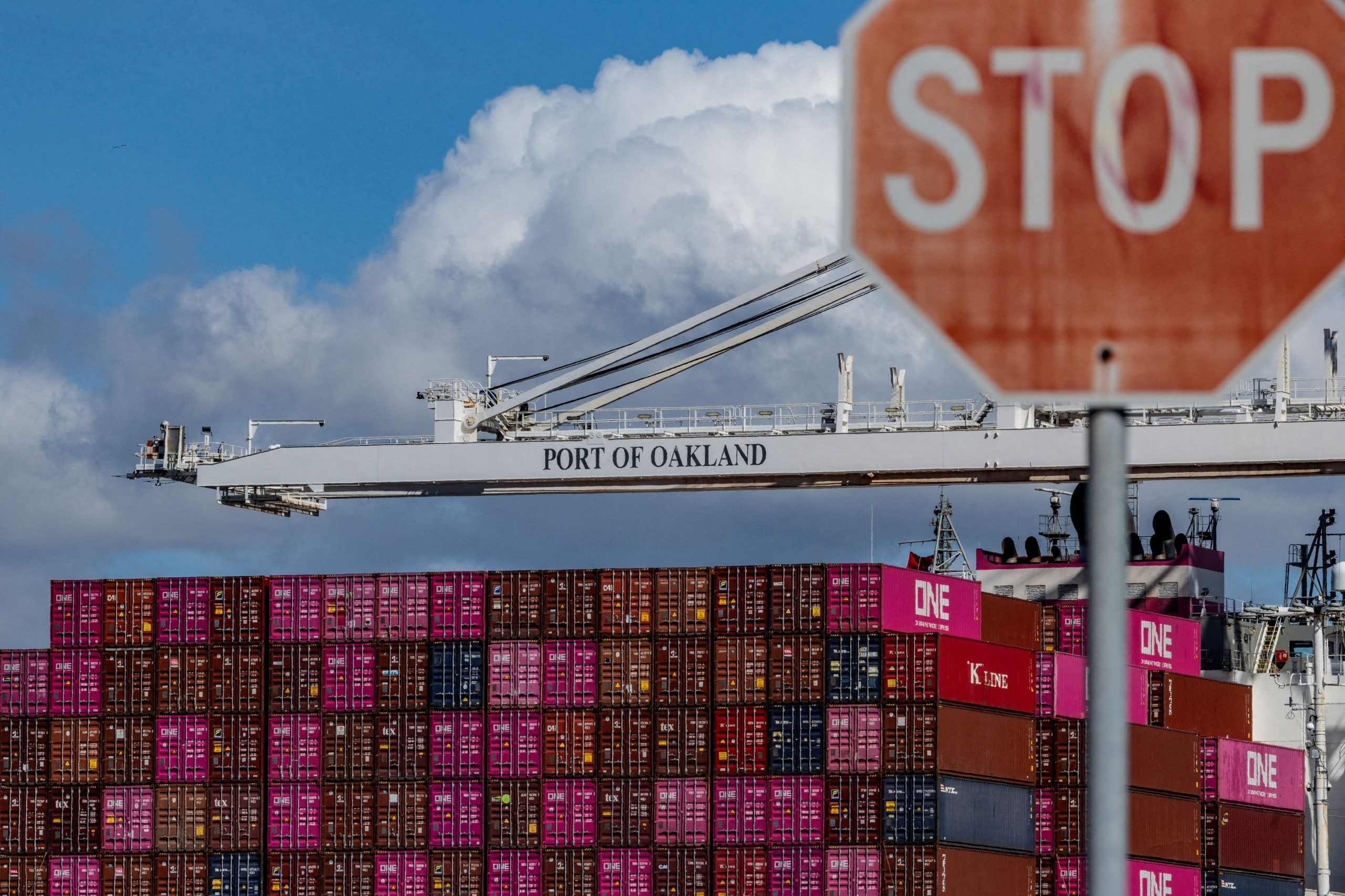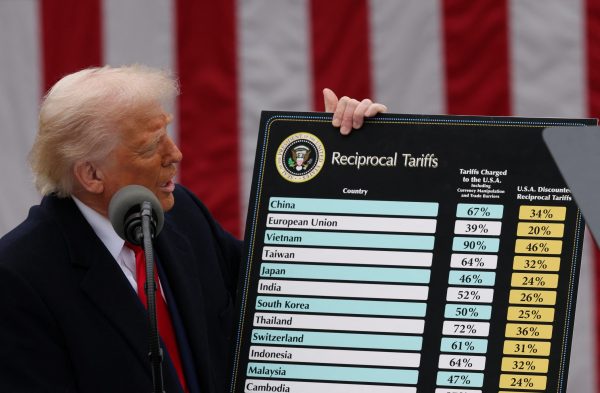
Since U.S. President announced a new 20% tariff on all goods imported from the European Union, in addition to the existing 25% tariff on automobiles, economists are all speculating on what the potential impact of what has come to be known as “Trump tariffs” could be on the Eurozone and Greece.
Recently, the Bank of Greece Governor Yannis Stournaras told the General Assembly of the Hellenic Association of Management Consulting Firms (SESMA) that the effects of Trmp Tariffs “would be negative for all economies involved, including the U.S.” A claim that recent data also supports.
“Trade protectionism,” he stressed, “tends to provoke chain reactions, with affected countries responding with retaliatory measures. This can escalate the crisis and slow global trade, with serious consequences for economic activity and growth.”
He explained that “the production, processing, and distribution of goods occurs through global value chains, which have increased interdependence among national economies.” As a result, imposing tariffs on imports from one country will also affect others participating in these value chains — even if no direct countermeasures are taken.
Ultimately, he noted, the indirect effects will have a multiplier impact, affecting not only the targeted countries but the global economy as a whole.
Against this backdrop, Stournaras stated that the countries most affected by a trade war would include nations like Mexico and Canada, given their heavy export dependence on the U.S., as well as economies with lower export levels to the U.S. but high exposure to global trade.
Regarding Europe, he pointed out that its economy is particularly vulnerable due to its high level of openness.
As for Greece, although it is less dependent on the U.S., it could still be indirectly affected since a broader slowdown in global trade could reduce demand for Greek products and dampen growth prospects.
Stournaras also addressed the investment dimension, noting that “increased market uncertainty deters investment, as businesses are less willing to take risks in an unstable environment.”
Speaking about the potential cost of a trade war, Stournaras cautioned that estimating the economic impact is “an extremely difficult task, as it depends on factors like the duration and intensity of the measures and countermeasures.”
Citing estimates from the European Central Bank (ECB), he noted that “the negative impact of currently announced measures on eurozone GDP is expected to be around 0.4%, considering that the drop in global demand is partially offset by a boost in competitiveness of European products due to inflationary pressures in the U.S.” However, according to analyses from international investment banks (e.g., Goldman Sachs, ABN AMRO), “the negative impact on eurozone GDP could exceed one percentage point.”
For Greece specifically, Stournaras emphasized that “the effects are expected to be milder compared to the eurozone average, as exports to the U.S. make up only about 4% of total Greek exports, compared to 8.5% for the eurozone.”
What offers some protection, according to Stournaras, is that “Greece’s participation in global value chains is relatively limited.”
Still, he added, “if the slowdown in global trade impacts key European markets, demand for Greek products could fall, hurting exports. In addition, general uncertainty in the markets may reduce foreign direct investment, delaying the momentum of Greece’s economic growth.”
Latest News

Trump Tariffs Jeopardize Growth: Piraeus Chamber of Commerce
The tariffs, aimed at reducing the U.S. trade deficit, are expected to have both direct and indirect effects on the European economy

EU Condemns Trump Tariffs, Prepares to Retaliate
As tensions escalate, the EU is expected to continue negotiations with Washington while preparing for potential economic retaliation.

Motor Oil Results for 2024: Adjusted EBITDA of 995 mln€; Proposed Dividend of 1.4€ Per Share
Adjusted EBITDA for 2024 was down 33% yoy. The adjusted profit after tax for 2024 stood at 504 million euros, a 43% decrease from the previous year

Cost of Living: Why Greece’s 3% Inflation Is Raising Alarm
Greece appears to be in a more difficult position when it comes to price hikes, just as we enter the era of Trump’s tariffs.

Fitch Ratings Upgrades the Four Greek Systemic Banks
NBG’s upgrade reflects the bank’s ongoing improvements in its credit profile, Fitch notes in its report, including strong profitability, a reduction in non-performing exposures (NPEs), and lower credit losses

Trump to Announce Sweeping New Tariffs Wednesday, Global Retaliation Expected
With Trump's announcement just hours away, markets, businesses, and foreign governments are bracing for the fallout of one of the most aggressive shifts in U.S. trade policy in decades.

Inflation in Greece at 3.1% in March, Eurostat Reports
Average inflation in the eurozone settled at 2.2%, compared to 2.3% in February

Greece’s Unemployment Rate Drops to 8.6% in February
Despite the overall decline, unemployment remains higher among women and young people.

Jerry Kalogiratos Highlights Key Role of Energy Transition and Data Demand in LNG Outlook
Energy transition and the prospects of LNG were discussed at Capital Link’s 19th Annual International Maritime Forum, during a panel discussion with Jerry Kalogiratos (Capital Clean Energy Carriers Corp.)

Santorini Safe and Ready for a Dynamic Tourism Season
Authenticity, cultural heritage, and genuine experiences at the center of Santorini's new promotional campaign
























![ΕΛΣΤΑΤ: Αυξήθηκε η οικοδομική δραστηριότητα κατά 15,6% το Δεκέμβριο [πίνακες]](https://www.ot.gr/wp-content/uploads/2025/03/DSC9655-2-1024x569-1-90x90.jpg)

















 Αριθμός Πιστοποίησης
Αριθμός Πιστοποίησης